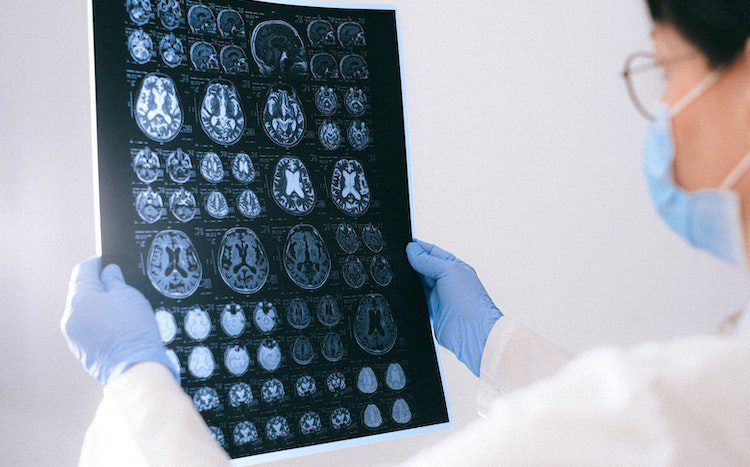 I remember the day I broke my left collarbone playing rugby. It was a breezy autumn day in September. I had gone to make a tackle–the opponent slipped out of it–and I fell with all of my weight on my left shoulder, snapping my clavicle bone clean in half.
I remember the day I broke my left collarbone playing rugby. It was a breezy autumn day in September. I had gone to make a tackle–the opponent slipped out of it–and I fell with all of my weight on my left shoulder, snapping my clavicle bone clean in half.
The pain was excruciating. I remember standing up, noting that an ominous blackness was entering my vision from each side, and I immediately vomited right there on the field.
On my way to the hospital, all I could do was cry. Once there, the nurses gave me a mild strength painkiller in capsule form: it did nothing for the pain.
Normally, a broken collarbone isn’t very serious; often, it heals on its own. But in my particular case the break was so severe that it required surgery and the insertion of a metal plate and six screws. At that point, the doctors administered morphine via a needle into my upper left thigh.
The relief was immediate and immense. In fact, I had never felt so good in my life! The only feeling my brain was registering was euphoria. The pain had completely disappeared. It was gone, and it stayed away for the next six hours.
Morphine is an opioid, and its effects can often mimic other opioids that have a bad reputation for being highly addictive. These include:
- Opium
- Codeine
- Heroin & methadone
- Hydrocodone
- Fentanyl & oxycodone
These opioids are addictive because they almost always guarantee a certain feeling: sublime happiness. Euphoric: that’s the simplest way to describe my brain on morphine at that time. I knew it was slightly dangerous to feel so good, but I didn’t understand why–nor did I dwell on it very long. On morphine, my brain was far too content to bother focusing on anything potentially negative.
When I suffered my clavicle fracture, I was given only a small dose of morphine. It was never prescribed to me again. For that reason, I never struggled with a morphine dependence. However, what happens to someone who habitually uses morphine?
What would happen to my brain if I had used morphine regularly from that point onward?
- Dopamine increases
Like most addictive drugs, habitual morphine use raises dopamine levels in users when they consume the drug. This creates euphoria or feelings of happiness and relaxation. It also decreases the level of physical and psychological pain that a person perceives. - Brain-plasticity changes
Brain plasticity (neuroplasticity), or our brain’s ability to change shape and responses after we experience different things changes with morphine use. Morphine makes our brains less flexible, less adaptable to change. - Addiction may form
Because of this decrease in ‘flexibility’ that morphine may cause in the brain, neural pathways become more solidified and rigid. This means that a person’s repeated behavior of using morphine and the dopamine rush it provides becomes a type of petrified neural pathway in the brain. It becomes very difficult to change our behavior at that point, even when we are fully aware of the consequences of addiction.
So what happens once our brains form that addiction but we want to kick it?
Morphine withdrawal is no joke. Once the brain is deprived of morphine, any of the following symptoms may occur:
- Eyes that tear up, runny nose, sneezing
- Insomnia/inability to sleep
- General digestive problems: nausea, cramping, vomiting, diarrhea
- Body tremors and/or headache
- Hot/cold flashes and/or joint pain and soreness
- Anxiety, irritability, and restlessness
All of these symptoms, along with the morphine addiction itself, can be incredibly scary and overwhelming to confront, especially alone. That’s why we’re here at Great Oaks Recovery Center to help you or your loved one cope as best as possible and get healthy as quickly as possible.
It’s normal to have a million questions before entering into treatment for a morphine dependence. If you’re unsure of what constitutes a morphine addiction or if detoxification is necessary, don’t hesitate to ask us. Here’s a quick overview of our processes:
- Admissions to Great Oaks Recovery Center
We make the admissions process as easy and welcoming as possible. We will cover all questions you may have about insurance options, treatment plans, facility norms, and lengths of stay. - Our Different Programs
Based on you or your loved one’s profile, we’ll help you decide the most prudent place to begin. This could mean entering detoxification first or going directly into residential treatment. Our family, ready-to-work, and continuing care programs provide a holistic level of care that extends beyond your time with us.
No matter where you’re starting out or what doubts you may have, we’re here for you and fully qualified to educate you about morphine and it’s addictive nature. We support you in your journey to refreshing and resetting your brain so that you can live a fulfilling life in sobriety.



